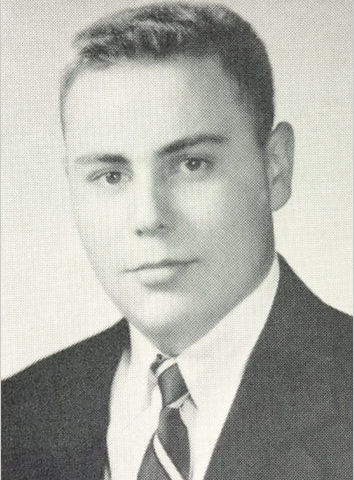Offered by Rev. Jaco ten Hove
UURMaPA Conferences February and October, 2019
“In the world of religion, one of the great neglected actors, a man who had a marquee moment but then fell into obscurity, is the Rev. James Stoll, a Unitarian Universalist who died in 1994. Mr. Stoll, one of the first openly gay ministers in America, had a difficult life… but he was hugely responsible for introducing American churchgoers to gay rights.” So wrote the New York Times [Mark Oppenheimer, 9/18/2010] in 2010 on the occasion of the death of the NYC vice officer [Seymour Pine] who in June 1969 led the Stonewall Inn raid.
Jim Stoll was born in 1936 in Connecticut, educated at Mount Hermon School in Massachusetts, at San Francisco State University and, finally, at Starr King School for the Ministry. After ordination, he served the UU Church in Kennewick, Washington, from 1962 until 1969. After leaving there — and church documents indicate that he was asked to resign — he moved back to the Bay Area.
Wayne Arnason, who was a continental leader in LRY (Liberal Religious Youth) in the late 1960s, remembers Jim as among the early out gay UU leaders alongside Dick Nash, although they moved in different circles. When Wayne met him sometime in 1969, Jim Stoll already had a significant history of support and involvement with continental youth ministry.
On that arc, Jim was an advisor to the post-high school U.U.s called Student Religious Liberals at their Continental Conference over Labor Day weekend 1969, held at Camp La Foret in Colorado. Wayne was there representing LRY and recalls that Jim, like so many closeted gay professionals, was both furious and inspired by the Stonewall Rebellion earlier that summer. “He had decided he would not live in secrecy any longer,” wrote Wayne. “He came out powerfully in a moving sermon and worship service at that conference, and it was a moment that changed my life.”
The New York Times article quoted another colleague who was there, Lee Bond-Upson, a good friend and roommate of Jim’s, who remembers that Rev. Stoll proclaimed, “‘If the revolution we’re in means anything, it means we have the right to be ourselves, without shame or fear.’ …Then he told us he was gay, and had always been gay, and it wasn’t a choice, and he wasn’t ashamed anymore and that he wasn’t going to hide it anymore, and from now on he was going to be himself in public. After he concluded, there was a dead silence, then a couple of the young women went up and hugged him, followed by general congratulations. The few who did not approve kept their peace.” Wayne Arnason adds, “For the first time, I was given access to the point of view of a gay man. The possibility that gay people weren’t sick, just different, opened up to me. The realization that my own ignorance was part of an oppressive system that I supported first occurred to me. I have been forever grateful.”
The next June at the 1970 General Assembly in Seattle, Jim was, as Wayne put it, “all-in with our LRY leadership cadre. He had an apartment in Seattle, and with his home as a base for our organizing, he offered us adult credibility and a place to stay when we needed it. But Jim also wanted something from us as we headed for that assembly. He had authored a resolution he wanted to get before the 1970 UUA General Assembly that would support “homosexual civil rights.” He needed allies, and he needed campaign workers to be able to get this resolution before the General Assembly by petition. The LRY leadership was happy to be among those allies… I don’t remember what the final vote was — but it passed. It was the first official statement by the UUA on anything related to LGBT people.
He was hugely responsible for introducing American churchgoers to gay rights. For those who support gay rights, he ought to be a hero; for those troubled by increased acceptance of homosexuality, he makes a vivid villain.
Rev. Stoll left not only his mark on human rights by advocating on behalf of GLBT Americans, but also his own life. When Rev. Stoll came out as a college student at Unitarian conference in September 1969, he stood in front of the audience and proclaimed “If the revolution we’re in means anything, it means we have the right to be ourselves, without shame or fear.” If only as a society we were to embrace these powerful words, I am confident that we would be a society that respected the beauty and uniqueness of God’s creation. According to one of the conference attendees at the 1969 conference, Stoll continued his speech by announcing that he was gay.
This hero of the GLBT struggle for equal rights died on December 8, 1994. We can only hope that his life and work imbue our continuing struggle for equality.
